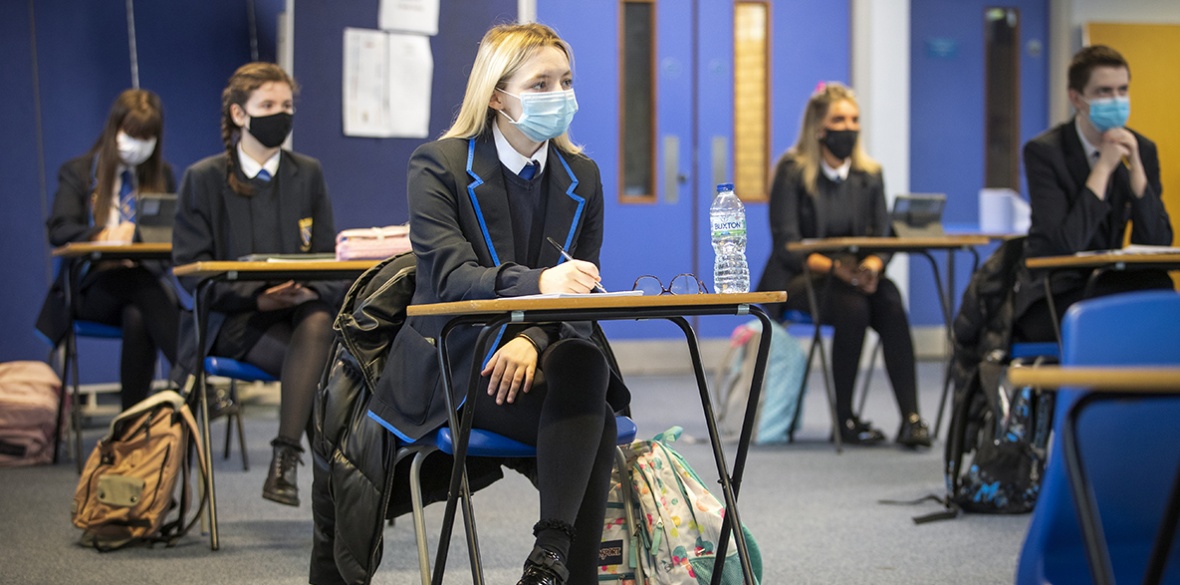This is the last article you can read this month
You can read more article this month
You can read more articles this month
Sorry your limit is up for this month
Reset on:
Please help support the Morning Star by subscribing here
AS LOCKDOWN is progressively dismantled, attention is beginning to focus on how we rebuild systems disrupted by the pandemic.
Coronavirus has been compared to an X-ray, exposing the bones of our economic structure. It highlighted whose labour we really rely on, while its intensification of existing trends throws inequalities of class, race and sex into sharp relief.
The lessons drawn from that differ depending on your place in the pecking order.
The Tories exploit the health emergency to bypass accountability structures in awarding contracts, while passing healthcare reforms that will allow them to avoid such checks on their conduct in future.
Their “back to normal” means more of the same.
The left’s response must of course be different: the crises deepened, but not created, by the pandemic should be the prompt for fundamental reform.
Britain’s biggest education union the NEU meets for its conference from today and the education sector stands out as making that case for profound change.
No other sector has suffered so much from the government’s determination to get “back to normal” before it is safe. The drive to get pupils back into the classroom last summer and again last winter followed an economic logic (freeing up their parents to attend work) that was indifferent to minor details like infection rates. Teachers standing up for the safety of their communities were subjected to barrages of hostile propaganda in the capitalist media.
This served one obvious purpose in trying to discredit anyone calling for a more cautious return to the classroom. But it was also designed to prevent public discussion of the issues being raised by teaching unions, which would have built up momentum behind demands for permanent change.
The government has consistently opposed measures that raise expectations of public services in the longer term.
The Morning Star’s Solomon Hughes has highlighted this in the distribution of free school meals, with the Westminster government preferring to hand a lucrative contract to a French corporation with no local knowledge, while Wales – which has a Labour government – was able to deliver the service through local authorities, strengthening local government and “building a social institution from scratch” that could not be switched off at a ministerial whim.
The proposals made by the NEU for a safe return to the classroom carried the same danger in Tory eyes. Requisitioning extra space to allow socially distanced learning would assert our social right to turn private property to socially useful ends. Recruiting extra teachers to facilitate smaller class sizes might accustom parents to the educational benefits of small classes.
Nor was the government keen on establishing a social right to internet access by tackling the problems children in poverty had in accessing remote learning.
Unions can struggle to bring their demands to public attention, at least without serious distortion, in a comms world dominated by the capitalist class.
Yet education unions are well placed to win public support for change. Schools are community hubs, and many teachers report increased communication with parents throughout the pandemic.
NEU joint general secretary Mary Bousted has written on the way parents’ experience of remote learning has opened eyes to major flaws in the curriculum and the negative impact on children’s learning of the exam-factory model – which itself has been undermined by the inability to hold exams, opening up a public debate on alternatives.
And the government’s own back-to-school propaganda forced it to acknowledge the enormous impact of poverty on educational outcomes.
The grounds for action on poverty, greater resources for schools and their reintegration into local authorities are clear.
The Tories won’t act on them willingly. But majority support can be mobilised behind such demands.
And, since there could be no children in poverty if there was no poverty, they lead naturally to that broader fight for pay, jobs and social justice our whole movement must take up as we emerge from the pandemic.










